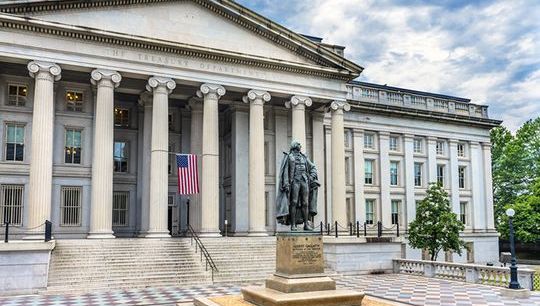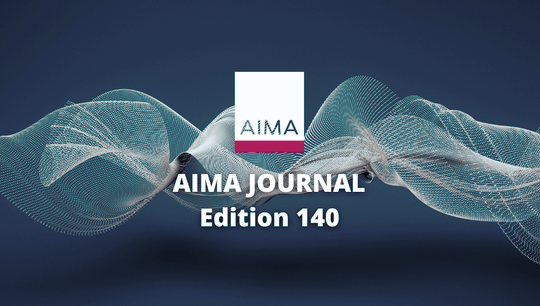New Cayman Islands beneficial ownership access rules: What fund managers and lawyers need to know
By Tom Katsaros; Wei Xun Toh, Carey Olsen Singapore LLP
Published: 22 September 2025
The Cayman Islands has long been recognised as a leading jurisdiction for investment funds, offering a robust regulatory framework while maintaining efficiency, ease of use and confidentiality. However, in line with increased global anti-money laundering (AML) and counter-terrorist financing (CTF) standards, the jurisdiction has introduced new regulations governing access to beneficial ownership information which directly affects Cayman Islands investment funds.
The Beneficial Ownership Transparency (Legitimate Interest Access) Regulations 2024 came into force on 28 February 2025 (the LIA Regulations) together with the accompanying Guidance on Applying for Access to Beneficial Ownership Information on the basis of Legitimate Interest and for the Protection from Disclosure (the LIA Guidance). The LIA Guidance clarifies who can access beneficial ownership data and under what circumstances. These changes are critical for fund operators (e.g. board of directors or general partner), sponsors and investment managers, legal practitioners, and corporate service providers to understand, as they impact compliance obligations and disclosure risks.
This article examines:
- The legal framework for beneficial ownership transparency in the Cayman Islands.
- Key provisions of the LIA Regulations and LIA Guidance
- Who qualifies for “legitimate interest” access?
- Practical implications for Cayman Islands funds and their advisors.
1. Background: Cayman’s beneficial ownership regime
The Cayman Islands has maintained a centralised beneficial ownership register since 2017, in compliance with the Global Forum on Transparency and Exchange of Information for Tax Purposes and Financial Action Task Force (FATF) standards. Until 31 December 2024, fund operators and managers could rely on exemptions from their funds or “registered persons” in maintaining a beneficial ownership register. Substantial changes to the regime were introduced on 1 January 2025 with the Beneficial Ownership Transparency Act, 2023 of the Cayman Islands (the BOT Act), in particular highlighting that investment funds registered under the Mutual Funds Act (as revised) or the Private Funds Act (as revised) (Regulated Funds) no longer benefitted from an exemption and would need to either (i) appoint a contact person under the alternative route to compliance (see further below) or, (ii) maintain a register of beneficial owners.
In addition, while access to beneficial ownership information was only restricted to competent authorities (e.g., the Cayman Islands Monetary Authority (CIMA) and law enforcement) under the previous regime prior to 1 January 2025, the Cayman Islands made a commitment to introducing publicly accessible registers of beneficial ownership information in line with the draft Overseas Territories (Publicly Accessible Registers of Beneficial Ownership of Companies) Order, prepared by the UK Secretary of State to comply with the requirement under section 51 of the UK’s Sanctions and Anti-Money Laundering Act 2018. The BOT Act hinted at providing such access to members of the public (in addition to competent authorities), and the recent LIA Regulations and LIA Guidance set out the framework for certain members of the public to apply to the competent authority to request access to beneficial ownership information, relating to a Legal Person (as defined under the BOT Act). The new rules aim to prevent abuse of corporate structures while balancing privacy and legitimate business confidentiality.
2. Key provisions of the LIA Regulations and LIA Guidance
(a) Who may apply for access to the search platform and what information/documents will need to be provided for proof?
(i) a person engaged in journalism or bona fide academic research;
- Evidence of their identity and credentials, for example copies of current and valid official identification and credentials, links to published works, recent approvals obtained as a journalist or academic researcher in other jurisdictions, and other such documentation as may be requested by the Competent Authority; and
- Evidence that the Legal Person subject to the application is linked to money laundering or terrorist financing by providing court reports, media articles, and any other documentation that evidences the link; and
(ii) a person acting on behalf of a civil society organisation whose purpose includes the prevention or combating of money-laundering, its predicate offences or terrorism financing; or
- Evidence of their identity, for example copies of current and valid official identification; and
- Evidence that the applicant is acting on behalf of a civil society organisation whose purpose includes the prevention or combating of money laundering, its predicate offences, or terrorism financing, for example copies of official identification and credentials, published details of the civil society organisation’s purpose, links to the registration details of the civil society organisation, and other such documentation; and
- Evidence that the Legal Person subject to the application is linked to money laundering or terrorist financing by providing court reports, media articles and other documentation that evidences the link; and
(iii) a person seeking that information in the context of a potential or actual business relationship or transaction with the legal person about whom that information is sought,
- The nature of the potential or actual business relationship or transaction with the Legal Person, providing details of the relationship or transaction, and documentation such as those capturing details of any proposals; and
- Evidence that the applicant is sufficiently interested in entering into a business relationship or transaction with the Legal Person, or evidence that the applicant has entered into a business relationship or transaction with the Legal Person, by including documentation such as due diligence already undertaken on the Legal Person, any contracts or other related documentation; and
In each of the above cases, a statement that access is being sought for the purposes of journalism or bona fide academic research / on behalf of the civil society organisation / in the context of a potential or actual business relationship or transaction with the Legal Person about whom the Information is sought and that the Information is sought for the purpose of preventing, detecting, investigating, combating or prosecuting money laundering, its predicate offences, or terrorist financing is also to be submitted. This statement should include details of the proposed relationship or transaction and how the Information from the Legal Person’s Beneficial Ownership Register fits into that relationship or transaction.
(b) Requirement for “Legitimate Interest”
In each of the above cases, such person may only apply for access if there is a legitimate interest in that information for the purpose of preventing, detecting, investigating, combating or prosecuting money laundering or its predicate offences or terrorist financing.
(c) Required fee
US$37 for one legal person and US$122 for multiple legal persons.
(d) Available information on the search platform
(i) For an individual
- Name of beneficial owner;
- Country of residence;
- Nationality;
- Month and year of birth; and
- The mechanism of control they have over the Legal Person.
(ii) For a reportable legal entity
- Name;
- Registered office;
- Legal form;
- Registration number; and
- The mechanism of control they have over the Legal Person.
(iii) For a deemed beneficial owner
- Name;
- Registered office;
- Legal form; and
- The mechanism of control they have over the Legal Person.
(e) Access restrictions
Under the Beneficial Ownership Transparency (Access Restriction) Regulations, 2024 (the Access Restriction Regulations), individuals (including senior managing officials) are able to apply for protection from public disclosure for a fee of US$1,200 where they believe that the disclosure of information relating to them and their association with the Legal Person, will place them, or a person living with them, at serious risk of:
(i) Kidnapping;
(ii) Extortion;
(iii) Violence;
(iv) Intimidation; or
(v) Other similar danger or serious harm.
(f) Key takeaways
(i) General public access is not allowed—unlike many other jurisdictions, the Cayman Islands maintains a restricted approach especially with the Access Restriction Regulations.
(ii) Fishing expeditions will not be permitted—requests must be specific, evidence-based, and proportionate.
(iii) Journalists and activists do not have automatic access. They must prove a direct link to suspected criminal activity.
(iv) In general, it is expected that Regulated Funds will nominate a contact person (e.g. an administrator licensed in the Cayman Islands) to hold up to date information on their beneficial owners that can be provided to the relevant Cayman Islands authorities within 24 hours of any request, rather than maintaining a register of beneficial owners. This is on the basis that (i) beneficial ownership information is generally held by the Regulated Funds’ administrator (or other licensed entity on behalf of the Regulated Fund), and (ii) only competent authorities can request beneficial ownership information from the relevant contact person.
3. Practical implications for Cayman Islands funds and advisors
(a) For fund managers
(i) For Regulated Funds who elect to maintain a beneficial ownership register, other than ensuring that the beneficial ownership register is up-to-date, no proactive disclosure required unless a valid request is made.
(ii) Ensure nominee arrangements comply with disclosure rules if investigated.
(iii) Monitor foreign regulations, as some jurisdictions (e.g., EU) may demand additional disclosures from Cayman Islands funds.
(iv) If required/applicable, apply for protection from public disclosure.
(b) For lawyers and compliance officers
(i) Advise clients on confidentiality risks when structuring ownership.
(ii) Prepare for increased scrutiny from foreign regulators seeking Cayman Islands ownership data.
Conclusion: A balanced approach to transparency
The Cayman Islands’ recent beneficial ownership reforms strike a careful balance between transparency and privacy, ensuring compliance with global AML standards while protecting legitimate business confidentiality.
For now, the regime remains more restrictive than public registers in the EU and UK, but fund managers and advisors should:
- Stay informed on evolving international standards.
- Ensure robust compliance with disclosure obligations.
- Be prepared for targeted requests from regulators and law enforcement.
As the regulatory landscape evolves, the Cayman Islands’ approach may face further adjustments—particularly if FATF or OECD requirements tighten and to reflect the Cayman Islands commitment to enhancements to their beneficial ownership register, on a legitimate interest basis, with more streamlined processes for multiple search requests, including on fees, as was highlighted at the recent meeting between the UK’s Minister of State for the Overseas Territories and Cayman Islands Premier in London on 17 June 2025. For now, the jurisdiction retains its appeal as a secure, well-regulated funds hub with sensible safeguards against misuse.
We regularly advise fund managers and onshore law firms on the formation and maintenance of Cayman Islands funds. Please reach out to your usual Carey Olsen contact, or one of the contacts listed here, if you require further guidance in relation to the above.







